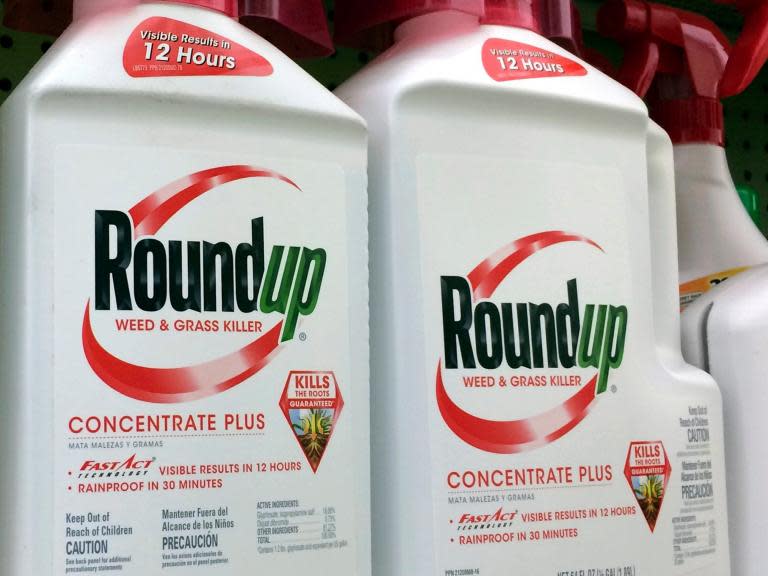Roundup weed killer ‘substantial factor’ in causing man’s cancer, jury finds
A jury has found one of the world’s most widely-used weed killers to have been a “substantial factor” in causing a man’s cancer.
The unanimous decision, made after five days of deliberations in San Francisco’s federal court, found that Roundup, Bayer AG’s weed killer, was responsible for California resident Edwin Hardeman’s non-Hodgkin lymphoma.
But the jury’s decision is not yet a finding of liability against Bayer AG.
It instead allows the trial to proceed to a second phase, which will determine the company’s potential liability and damages.
Roundup is made with glyphosate.
The highly controversial chemical was declared “probably carcinogenic to humans” in 2015 by the World Health Organisation’s International Agency for Research on Cancer.
Mr Hardeman’s case is a so-called bellwether trial, which is intended to help determine the range of damages and settlement options for the more than 760 Roundup cases consolidated in San Francisco‘s federal court.
The case is only the second of some 11,200 Roundup lawsuits pending in the US.
In August another California resident was awarded $289m (£247m) after a state court jury found Roundup caused his cancer, sending Bayer AG’s shares plunging at the time.
That award was later reduced to $78m (£66.7m) and is being appealed.
Bayer AG denies allegations that Roundup or glyphosate cause cancer.
The company says decades of studies and regulatory evaluations, primarily of real-world human exposure data, have shown the weed killer to be safe for human use.
On Tuesday a spokesperson for Bayer AG said it was disappointed with the jury’s initial decision.
“We are confident the evidence in phase two will show that Monsanto’s conduct has been appropriate and the company should not be liable for Mr Hardeman’s cancer,” the spokesperson said.
Bayer AG acquired Monsanto, the company which makes Roundup, in 2018.
During the second phase of the trial Mr Hardeman’s lawyers will be allowed to present evidence allegedly showing the company’s efforts to influence scientists, regulators and the public about the safety of its products.
“Now we can focus on the evidence that Monsanto has not taken a responsible, objective approach to the safety of Roundup,” the legal team said in a statement.
The lawyers were barred from doing this in the trial’s initial phase.
The trial continues.
Additional reporting by agencies

 Yahoo News
Yahoo News 

